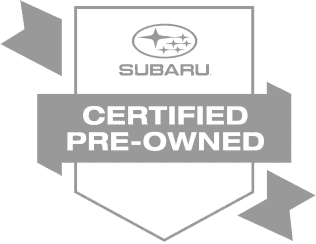

What fuels you? If you're like most Americans, the answer is cheeseburgers, mostly. But shove a double cheeseburger and fries into your car's tank and you'll have problems. Gasoline is a better choice for fueling your Subaru vehicle. On this page, the experts at the Capitol Subaru service center will familiarize you with the fuel system on your car -- how fuel makes its way from the tank to the engine where it blends in perfect ratio with air to create an explosive combination. If your car feels underpowered or has started to consume fuel at a much faster rate, a problem in the fuel system could be to blame. Learn more below, then get the help you need in our service center.

5. Fuel Tank & Fuel Cap
Believe it or not, one of the most common causes of the check engine light turning on suddenly in your vehicle is a fuel cap that simply wasn't tightened enough. When you add gas to your car at the pump, it flows down the filler neck and into the tank. But since gasoline vapors are flammable and potentially harmful, the system is designed to maintain a proper pressure inside the fuel tank, and prevent any vapors from leaking out. Unless your vehicle is equipped with a capless fuel filler, be sure to turn the fuel cap on your car until you hear the click after filling up!

4. EVAP System
In fact, your fuel system has a whole subsystem designed to capture harmful gasoline vapors as they evaporate. That's where the term EVAP system comes from. As gasoline vapors evaporate, the fumes make their way to a charcoal cannister that captures them. As the engine begins to warm up, a purge valve will open allowing the engine to burn up the recaptured gas vapors -- so none goes to waste.
Having issues with the fuel pump auto-off feature activating before your tank is full? This can be caused by problems in the fuel tank or EVAP system. As you add gas to the tank, the air inside must be displaced -- if air isn't able to escape the tank quickly enough, the fuel pump might turn off prematurely.
3. Fuel Pump
On most modern cars, the fuel pump is now integrated into the fuel tank itself. That means, if you experience a problem with your car's fuel pump, the whole fuel tank will need to be dropped in order to service the pump inside. This can make it harder for DIY mechanics to take care of this particular problem on a Sunday afternoon spent in the driveway.
Since modern cars also feature fuel injection technology, a steady stream of pressurized fuel is required at all times. The fuel pump is designed to meet this need. Take care that you don't allow the fuel tank to run completely empty! The fuel pump's moving parts are lubricated by the gasoline flowing through it -- if the fuel pump is allowed to suck air, the fuel pump could become severely damaged.

2. Fuel Injectors
While older engines had various ways of adding gasoline to the engine's combustion chambers, today's modern cars all feature fuel injectors. Some of these fuel injectors add fuel into the intake, where the fuel mixes with air. Other systems use direct fuel injection, adding the fuel and mixing it with the air inside the cylinder itself. No matter what kind of fuel injection system you have, you should know that the fuel injectors may need to be cleaned periodically to restore maximum performance and fuel efficiency. If your car has lost power or has started to guzzle more gas than it used to, have a technician take a closer look at your fuel injectors. They'll recommend fuel injector cleaning if they feel it would improve performance.
1. Intake System
While it's not technically a part of your car's fuel system, the vehicle's intake system is intimately related. After all, it's the blend of air and fuel inside the engine that creates the combustion that powers your car. If the ratio of air to fuel is out of whack, you'll experience degraded performance and fuel economy. The intake features an intake manifold and various intake ports as well as electronic sensors like O2 sensors and the Mass Airflow Sensor to monitor and adjust the amount of air getting to the engine.
Capitol Subaru of Salem
920 Auto Group Ave NE
Salem, OR 97301
- Sales: 503-587-5500
- Service: 503-587-5500
- Parts: 503-587-5500







